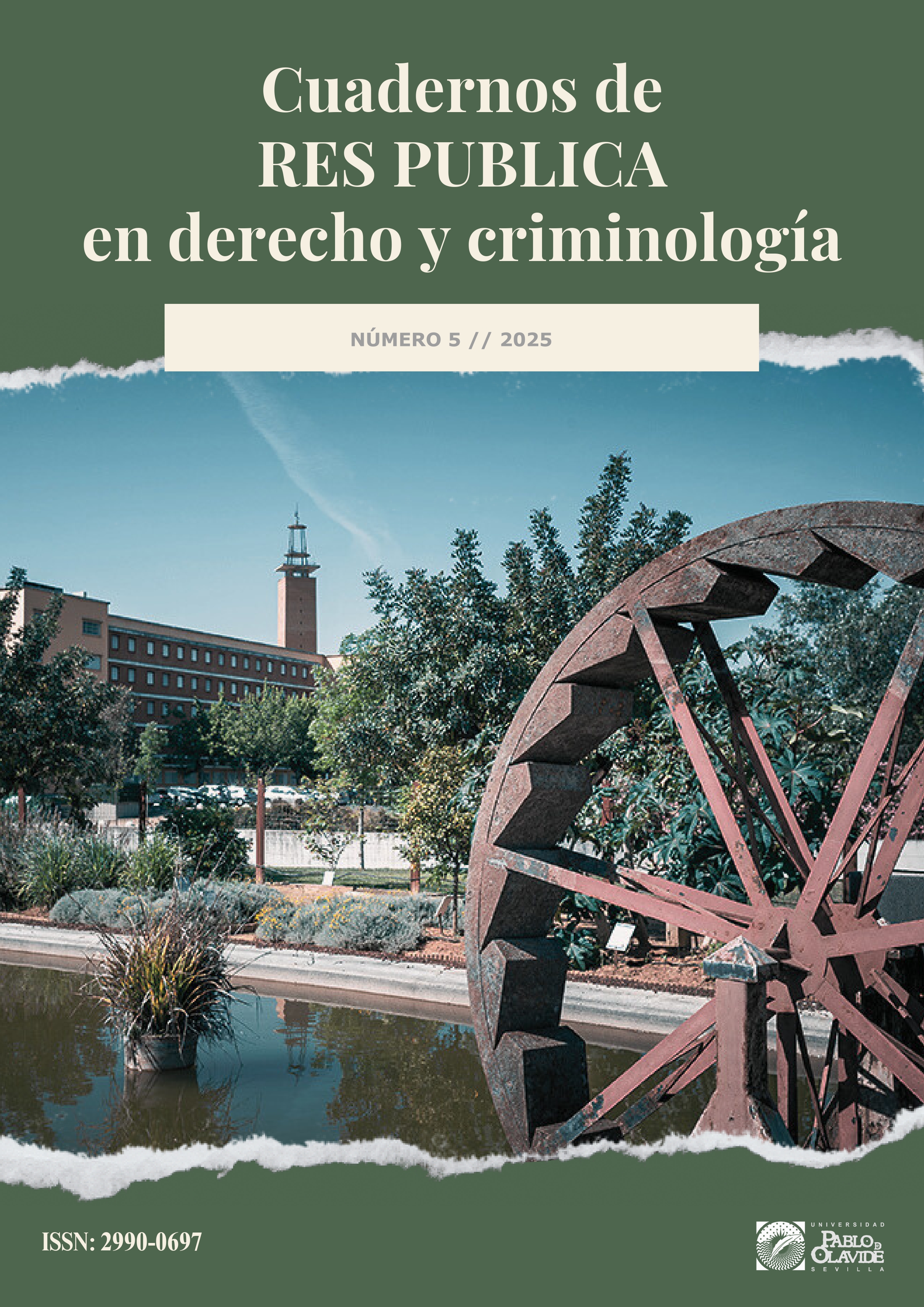Educación de la sexualidad en la adolescencia
DOI:
https://doi.org/10.46661/respublica.11268Palabras clave:
Educación, sexualidad, prevención, violencia, adolescenciaResumen
Este texto aborda la educación sexual desde una perspectiva pedagógica integral y humanista. La sexualidad está influenciada por la dimensión psíquica, ya que depende de la estructura de la personalidad, formada por cuerpo y mente/espíritu. La educación sexual cobra su verdadero sentido cuando se orienta al desarrollo completo de la persona. Desgajada de la educación integral del ser humano, esta formación puede desvirtuarse y perder su propósito. Desde la infancia, el educando debe recibir orientación sexual adecuada, acorde a sus características. Tras un análisis de la educación sexual desde una perspectiva internacional y en España, se destaca la controversia en torno a esta cuestión, reflejada en la diversidad de enfoques pedagógicos (moralista, funcionalista, afectivo, preventivo e integrador/comprensivo). El trabajo concluye con una propuesta orientadora de educación sexual para la adolescencia, centrada en la prevención de problemas y violencia, y en el fomento de conocimientos, valores y hábitos.
Descargas
Citas
BROUSKELI, Vasiliki. & SAPOUNTZIS, Antonis. (2017). Early childhood sexuality education: Future educators’ attitudes and considerations. Research in Education, 99 (1), 56-68. https://doi.org/10.1177/0034523717740149
FoSE (2012). National Sexuality Education Standards: Core Content and Skills, K–12 (a special publication of the Journal of School Health). Documento disponible en: https://goo.su/I7BtgXR.
FoSE (2020). National Sexuality Education Standards: Core Content and Skills, K–12. Second edition. Documento disponible en: https://goo.su/RcJ3r.
GARCÍA HOZ, Victor. (1994). Orientación de la sexualidad (126-156). En García Hoz, V. et al.: La orientación en la educación institucionalizada. La formación ética, Rialp.
GOLDFARB, Eva. & LIEBERMAN, Lisa. (2021). Three decades of research: the case for comprehensive sex education. Journal of Adolescent Health, 68, 13-27. https://doi.org/10.1016/j.jadohealth.2020.07.036
HOULT, Thomas. Ford. (1984). Human sexuality in biological perspective: Theoretical and methodological considerations. Journal of Homosexuality, 9(2-3), 137-155. https://doi.org/10.1300/J082v09n02_09
KHUBCHANDANI, Jagdish.; CLARK, Jeffrey.; & KUMAR, Raman. (2014). Beyond controversies: sexuality education for adolescents in India. Journal of family medicine and primary care, 3(3), 175–179. https://doi.org/10.4103/2249-4863.141588
LEUNG, Hildie.; SHEK, Daniel.; LEUNG, Edvina. & SHEK, Esther. (2019). Development of Contextually-relevant Sexuality Education: Lessons from a Comprehensive Review of Adolescent Sexuality Education Across Cultures. International Journal of Environmental Research and Public Health, 16 (4), 621. https://doi.org/10.3390/ijerph16040621
MARÍAS, Julián. (1970). Antropología metafísica. Revista de Occidente.
Ministerio de Educación y Formación Profesional (2020). LOMLOE, Ley Orgánica de modificación de la LOE (Ley Orgánica 3/2020, de 29 de diciembre). Boletín Oficial del Estado, 340. Documento disponible en: https://www.boe.es/boe/dias/2020/12/30/pdfs/BOE-A-2020-17264.pdf
MOLINA, Ludwin. (1999). Human sexuality. Northridge, California State University.
OMS y BZgA (2010). Standards for Sexuality Education in Europe. Documento disponible en: https://www.bzga-whocc.de/fileadmin/user_upload/WHO_BZgA_Standards_English.pdf
OMS y BZgA (2018). Sexuality education in Europe and Central Asia: state of the art and recent developments. An overview of 25 countries. Documento disponible en: https://goo.su/EiVLLXu.
PANCHAUD, Chistine.; KEOGH, Sarah.; STILLMAN, Melissa.; AWUSABO-ASARE, Kofi.; MOTTA, Angélica.; SIDZE, Estelle. & MONZÓN, Ana. (2019). Towards comprehensive sexuality education: a comparative analysis of the policy environment surrounding school-based sexuality education in Ghana, Peru, Kenya and Guatemala. Sex Education, 19 (3), 277-296. https://doi.org/10.1080/14681811.2018.1533460
ROHRBACH, Louise; BERGLAS, Nancy.; JERMAN, Petra.; ANGULO-OLAIZ, Francisca.; CHOU-CHIH, Ping. y CONSTANTINE, Norman. (2015). A rights-based sexuality education curriculum for adolescents: 1-year outcomes from a cluster-randomized trial. Journal of Adolescent Health, 57(4), 399-406. https://doi.org/10.1016/j.jadohealth.2015.07.004
ROLLSTON, Rebekah,; WILKINSON, Elizabeth .; ABOUELAZM, Rasha.; MLADENOV, Petar.; HORANIEH, Nour.; & JABBARPOUR, Yalda.; (2020). Comprehensive sexuality education to address gender-based violence. Lancet, 396 (10245), 148-150. https://doi.org/10.1016/S0140-6736(20)31477-X
UNESCO (2014). Educación Integral de la Sexualidad: Conceptos, Enfoques y Competencias. París, UNESCO. Documento disponible en: https://goo.su/tezcI.
UNESCO (2018). Orientaciones técnicas internacionales sobre educación en sexualidad. Un enfoque basado en la evidencia. París, UNESCO. Documento disponible en: https://goo.su/8G7yS0s.
VENEGAS, Mar. (2011). El modelo actual de educación afectivo-sexual en España. El caso de Andalucía. Revista Iberoamericana de Educación, 55 (3), 1-10.https://doi.org/10.35362/rie5531592
Descargas
Publicado
Cómo citar
Número
Sección
Licencia
Derechos de autor 2024 Valentín Martínez-Otero Pérez

Esta obra está bajo una licencia internacional Creative Commons Atribución-NoComercial 4.0.




